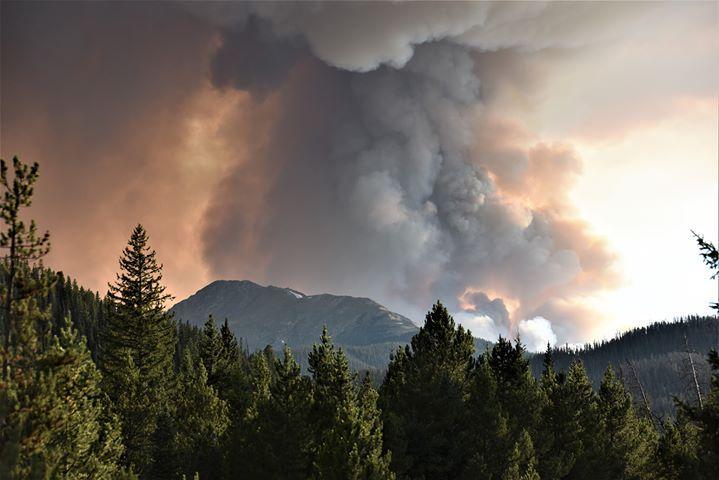
Grassroots Wildland Firefighters, a new, very active, and increasingly relevant organization has released a statement about mental health:
Mental Health Awareness Month – Time to Shed Light on Federal Wildland Firefighters Most Urgent Challenge
Greater than the acres of treasured forest lands lost, more valuable than any one residential home or business, more challenging than the most complex of wildfire incidents is the challenge of addressing the mental health crisis currently facing the firefighting community. In the Fall of 2019, six current and former federal wildland firefighters came together to discuss and identify what they believed to be major issues plaguing wildland firefighters. Determined to create lasting reforms, they developed solutions critical to protecting and advancing the health and wellness of the men and women who dedicate their lives to such a critical public service.
Mental Health and Wellness is truly at the core of what drives the Grassroots Wildland Firefighters (GRWFF) mission, and they remain steadfast to serve, protect, and support our sisters and brothers; our family.
We’re all here today because we’ve experienced loss in one form or another. We have lost friends in the line of duty. We have lost friends to suicide. We have lost friends to cancer after a lifetime of firefighting. We have buried our friends and colleagues. We have had close calls on the line that shake us to our core. We have responded to medical incidents that involve one of our own. We re-live and revisit these traumatic events never to be forgotten no matter how hard we try to put them aside. We struggle to reconnect with our partners, our children, and our loved ones after being absent from their lives for months on end; missing birthdays, anniversaries and knowing cherished moments are lost. We have struggled with our own demons. We have felt alone.
The Grassroot Wildland Firefighters are here today because of our shared experiences and the invisible bonds we develop. You are not alone. We are listening, and we hear you.
The members of the Grassroots Wildland Firefighters have had the honor and privilege to work in a multitude of positions within the wildland fire community. These experiences have provided our lives purpose, a sense of duty, and incredible opportunity. But it is the extraordinary people with whom we’ve shared these experiences and the lifelong connections we created that have had the largest and most lasting impacts on our lives. They are our brothers and our sisters; they are our family. But deep connections often come at a high cost. And so, when our fire family members are struggling or taken from us too soon, the impact and loss can be immense and often crippling.
The increase in public demand and expectations placed on Wildland Firefighters to respond to ever larger and more intense wildfires is far from abating, and, as a matter of fact, is expected to exponentially increase in the coming years. Our federal Wildland Firefighter workforce is currently experiencing a major decline in frontline fire experience, advanced leadership qualifications, and severe staffing shortages not seen in recent memory.
Coming out of a pandemic during one of the worst fire seasons in history puts us in a position of incredible stress and strain on our personal mental health and wellness. The physical fire environment is outpacing our ability to think and act creatively. For our federal wildland fire workforce, we are outmatched and outpaced with the social and political demands that are expected of us. This places an untenable burden on the federal wildland firefighting response community. The GRWFF recognizes this burden impacts not only us, but the partners and families we leave behind.
We are reaching out to our fire family during Mental Health Awareness Month to reaffirm our commitment to the wildland fire community. As we progress as an organization, so too does our commitment to the comprehensive Health and Wellbeing of our federal fire workforce.
As the GRWFF Comprehensive Health and Wellbeing subcommittee gathers data and research on the topic of mental health, we also continue to develop our resources page on the GRWFF website. We are working with several other non-governmental organizations to provide data, research, stories, and resources to help raise awareness and propose much needed reforms.
We recognize these problems are complex, but we are committed to identifying the true source of these issues and developing and implementing real solutions through legislative efforts to further support our fire family. We are all in this together.

Recognizing the growing strain on mental health , in recent years the Wildland Firefighter Foundation has stepped up to add support benefits and referrals for wildland firefighters, including employees of our privately contracted partners.
I highly recommend any person not just firefighters or Aviation but just the common housewife or common tax paying individual to go check out the Grassroots Wildland Firefighters (GRWFF) website. I have felt every meeting has been successful and well done. Top notch and I look forward to their meetings each month. Even when ill, I pencil it in and “show up”